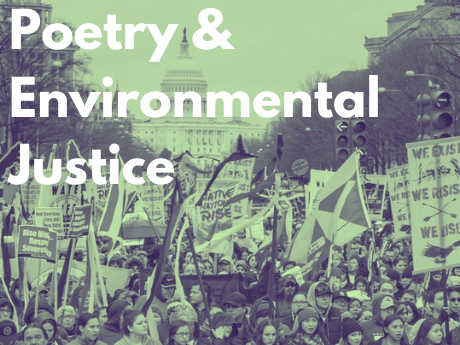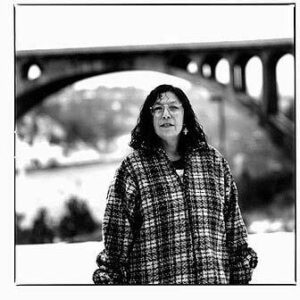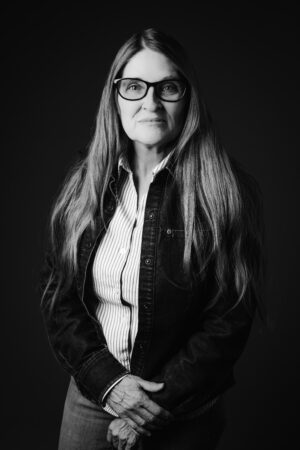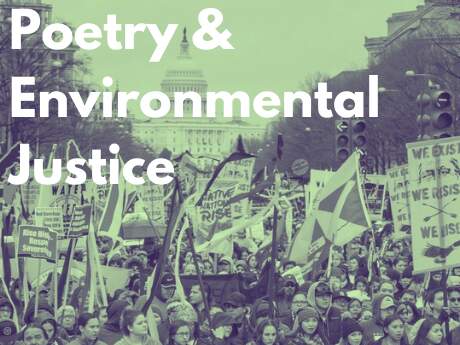Poetry & Environmental Justice
Allison Adelle Hedge Coke on “For History on Behalf of My Children” by Gloria Bird

For History on Behalf of My Children
I am the surrounded voice
of the forest, my history
registered in wind through trees,
the ones left standing
between human presumption and frailty.
I am the voice of the rivers
banking the nation
on the south and west,
the pulse of the living earth
you have exposed
and been exposed to,
the voice of continuous merging,
though some deny it.
It is only human
to speak of surrender
though it may be taken as weakness
acceding to impotent power.
You who believe in nothing
prefigure as you receive.
Only in hard language
can I speak on behalf of my children
until they learn to speak
until they learn to take up
the contained wind
and its knowledge
of the millennium,
until they echo the tongue
of the river
merging past with future
at its bleeding mouth.
From Full Moon on the Reservation (Greenfield Review Press, 1993). Reprinted with the permission of the author.
On "For History on Behalf of My Children"
This poem taught me that to reach through power, to transform minds and hearts of decisionmakers, a certain humility is powerful. The voice of the natural world offers an unexpected strength. It is only when we allow the natural world to have its due, its pulse and power, voice, that we, too, may continue. As a poet, this poem led me to allow the earth, her people in different forms, to speak truths to power through the poetry of engagement. To let nature be the guiding powerful strength working through us to sustain and educate all those who might hear, to be better toward our planet and all her future children, in our testimony in court, on the street, in the bush.
More is accomplished within these three stanzas than perhaps hours at a podium speaking to power about justice. The voice of the natural world is moving, authentic, confrontational, and makes evident the thick guilt of takers, insisting on chance for the endangered children to live (restoration, parity).
In its first stanza, this persona poem occupies mightiness from a surrounding ecosystem, a place. It shifts consciousness, sifts away anything unremarkable, becomes iconic, magnificent, then quickly indicts those who mean it harm by its end line. Throughout the second stanza, a deliciously articulate and witty denunciation of recklessness, the voice transfers swift message perhaps to resourcers, extractors, to power, of foolishness in those who lack faith in the importance of the abundance of the natural world that binds us. The closing stanza gives reasoning of the speaker/parent, or maybe omnipresent wisdom in bearing responsibility to protect all children, raising them to gain agency, to become, to thrive throughout all time and into a merging past/present future, at the mouth of portend. By the end of the poem, devastated as we now are, we do know better. We have been educated. Don’t foolishly endanger children (the future).
Perhaps the most phenomenal function of persona is to move power to bend an ear and actually hear defense of nature, in a way power rarely cares to. This strategy influenced me to seek and write persona works in my own active engagement. Years later, when I lobbied for acknowledgement, protection and conservation of the environment and built world of Blood Run (a traditional mound city with delicate ecosystem), and for curriculum to be developed to educate local community of its significance, the resulting work, a free verse play, was cover to cover persona, sans the two narrative bookends anchoring its contents.
My court testimony for Blood Run (now Good Earth State Park) was immersed in weaving fact with persona throughout the hearings and what won the hearts of the decision makers to protect the site I lobbied for, was the poetry. The voice of place, bore witness, testified. Letting the place speak was my way of understanding where I was and what I was doing there, was the first step to understanding, to peace, to transformation.




